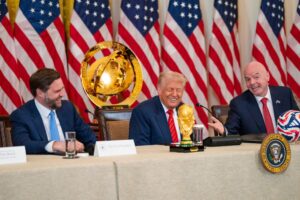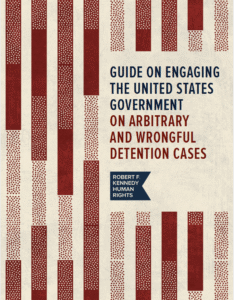On May 12, Robert F. Kennedy Human Rights and Media Legal Defense Initiative (MLDI) submitted an amicus curiae brief to the Supreme Court of Justice in Colombia in a tutela (protection action) defending the right to social protest. The case was brought on behalf of nine human rights organizations whose right to protest had been systematically repressed by Colombian police, and it specifically highlighted the government’s violent repression of peaceful protests across the country in November and December 2019.
Across the globe, and in Latin America in particular, rising police repression of peaceful protests comes at a time when democracy itself is increasingly coming under attack. Right now, the ability to peacefully assemble and demand accountability and justice is critical. In recent years, Colombian human rights organizations have noticed rising levels of violence against those who choose to exercise their right to protest. State security forces have repeatedly injured protesters with physical blows or the aggressive use of “less-lethal” weapons, like tear gas and stun guns. During the “Paro Nacional” (national strike) protests in November 2019, hundreds of thousands of people protested against Ivan Duque’s government and its potential reforms to the pension and education systems; the failure to properly implement the 2016 Peace Accords; and the constant threats to and killings of social leaders and human rights defenders. The government responded to these massive mobilizations across the country by bringing in the military to reinforce the police, which led to brutal attacks against peaceful protesters and innocent bystanders that resulted in severe injuries and several deaths. Journalists attempting to cover the protests were also attacked or arbitrarily detained, or had their notes or equipment stolen.
The amicus brief lays out international law and standards establishing that the right to protest is closely bound to fundamental civil liberties, like the rights to freedom of expression, assembly, and association, and is essential to a democratic society. Guidelines and jurisprudence from experts and every major international and regional human rights mechanism agree that social protests are an important and indispensable tool for fostering public discussion, expressing dissent, and raising awareness of the concerns of organizations or marginalized groups that may not otherwise have access and visibility. As such, governments have a duty not only to refrain from restricting the right to peaceful protest but also to guarantee that right and ensure that people can protest freely and safely. The brief underscores that in the context of public assemblies, force must be used only as a last resort to prevent serious injury or death, and the force must be proportionate to the threat presented. The brief also outlines Colombia’s special duty to protect journalists covering protests from harassment, attacks, and any other interference in their ability to do their work.
RFK Human Rights and MLDI have asked the Court to consider how the actions of the Colombian authorities have unjustifiably limited the right to protest and the related rights to freedom of expression, peaceful assembly, and public participation under international law in its resolution of the protection action.
This initiative represents the latest effort taken by RFK Human Rights to protect civic space around the world, in countries including Egypt and Guatemala. We continue to monitor repressive measures being taken by governments all over the globe.




